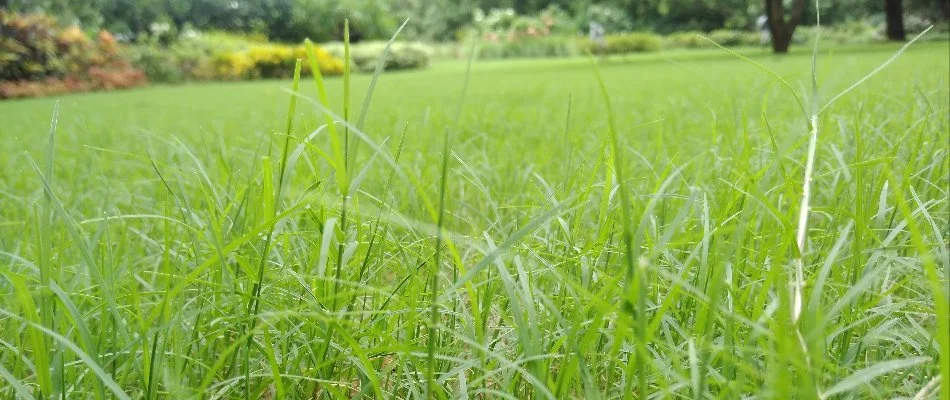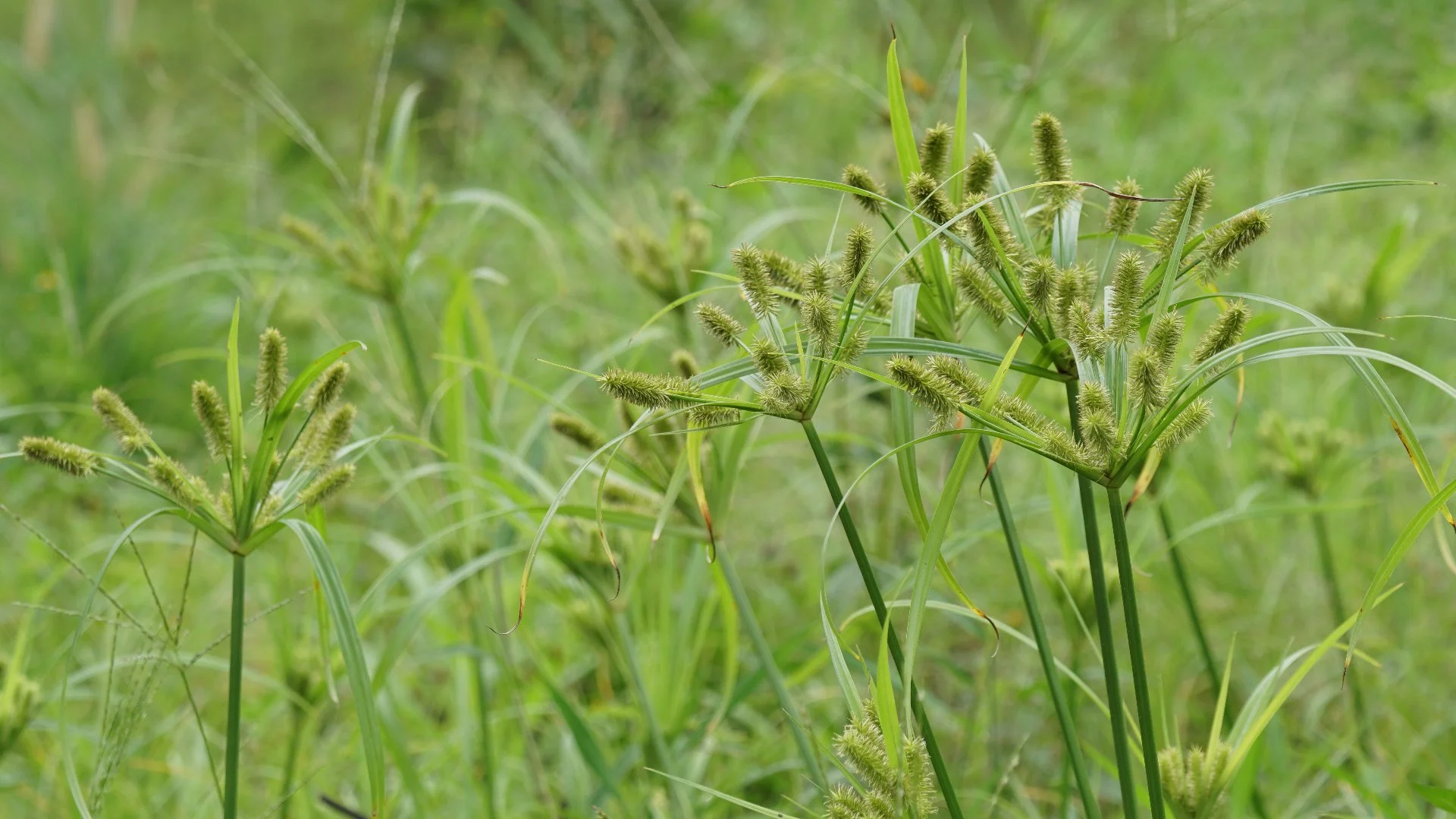Nutsedge is a common weed that property owners in North Carolina and South Carolina usually have to deal with from time to time. It is a rapidly growing, invasive weed that resembles grass. With triangular stems, stiff, narrow leaves, and an extensive root system, nutsedge weeds are commonly found in lawns with poor drainage. While it may look similar to your grass blades, you need to eliminate nutsedge ASAP because they will steal nutrients from your grass, leaving it weak and unattractive. Fortunately, there is an effective way to tackle this invasive weed! You can schedule professional weed control treatments to eliminate this weed from your property.
What does nutsedge look like?

Nutsedge is a rapidly growing weed that belongs to the sedge family. It is a perennial weed and is considered to be one of the most problematic ones because of its invasive growth habit. Nutsedge can fly under the radar because it resembles grass, allowing it to quickly take over your lawn without being noticed. If you notice that there are patches of grass on your lawn that are growing faster and are visibly taller than other weeds, it's likely nutsedge.
When you look at nutsedge closely, you'll notice that this grass-like sedge has stiff, triangular stems and long, narrow leaves. Fully-grown nutsedge plants can grow up to 36 inches. Their leaves are also stiffer than grass blades and they have dark yellow seedheads that grow from the center of the plant.
Nutsedge plants are very adaptable. They thrive in areas with poorly-drained soils, but they can continue to grow even in dry soil. These weeds can also live in soils with low fertility and high acidity! What's more, nutsedge has an extensive root system that can reach 8-14 inches below the soil. Its root system consists of tubers and rhizomes that can persist in dormancy for years, making it tough to control.
Why You Should Remove Nutsedge Even If It Looks Like Grass
If nutsedge looks like grass and blends well with your entire lawn, then why should you remove it? Well, because nutsedge weeds are still like any other weed and can be detrimental to the health of your grass. Because of their vigorous root system, they can easily outcompete your grass for nutrients and other essential resources. If nutsedge is growing and taking over your lawn, your grass can become weaker due to the lack of resources it's receiving.
Don't pull nutsedge by hand because the tubers and rhizomes of its roots can easily produce a new plant to replace what you removed.
How do you get rid of nutsedge?
When you notice nutsedge growing on your turf, you should remove it as soon as possible to keep it from taking up more space on your property. The best way to eliminate nutsedge from your property is to invest in professional weed control treatments! If you have an existing nutsedge problem on your property, post-emergent weed control treatments will target these weeds and get rid of them. To ensure they don't sprout again, you'll also want to invest in pre-emergent treatments to create a barrier in the soil that will help to keep nutsedge from popping up on your turf!
Call us today to schedule our weed control service!
One of the last weeds you want to see spreading on your lawn is nutsedge. Fortunately, we offer a weed control service that you can sign up for to make this weed a problem of the past! This service involves pre- and post-emergent weed control treatments to ensure you can enjoy a weed-free lawn on your property. We offer this service to commercial properties and HOAs in Charlotte, Matthews, Pineville, NC, and nearby areas. We also offer this service in Fort Mill and the surrounding areas in South Carolina. Call us today at (704) 821-4066 to schedule this service.



Comments (0)
Thanks for your comment!
Thanks for your feedback! Your comments have been successfully submitted! Please note, all comments require admin approval prior to display.
Error submitting comment!
There is a problem with your comment, please see below and try again.